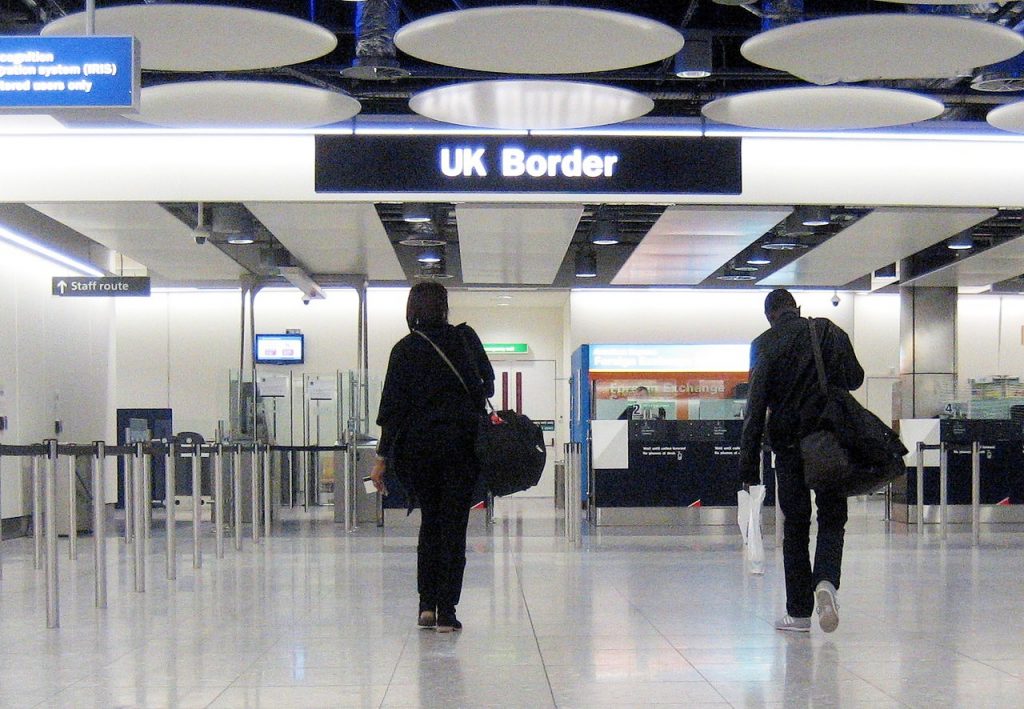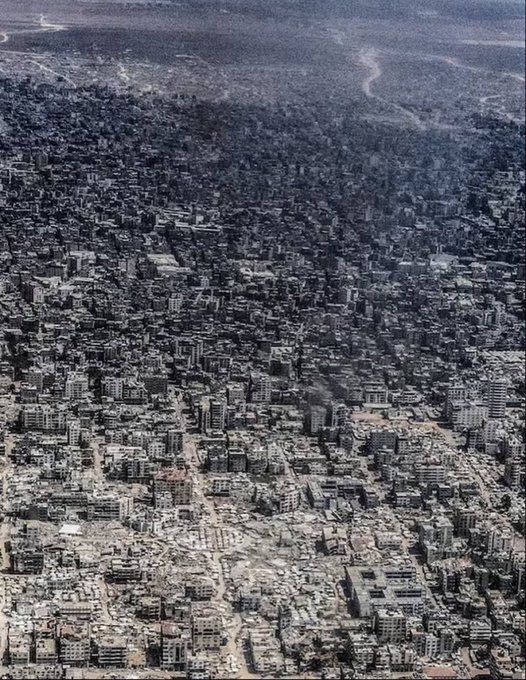You can download a summary of the main points in leaflet form as a PDF here.
KNOW YOUR RIGHTS:
What to do if you are stopped, detained or questioned by security services while travelling or at any UK port under Schedules 7 and 8 of the Terrorism Act 2000.
Where can you be stopped?
Schedule 7 of the Terrorism Act 2000 allows the interrogation, search and potential detention of individuals by police and immigration officers at ports and borders, without reasonable cause or suspicion.
This means that you can be stopped:
- At a seaport, an airport or hoverport;
- At an international train station (i.e. London-St Pancras International, Ashford International and Ebbsfleet International);
- On an airplane, ship, hovercraft, or on an international train (including in a vehicle);
- At the Eurostar or Channel Tunnel terminals and stations in France and Belgium; and
- Within one mile of the border between Northern Ireland and the Republic of Ireland or at the first train station in Northern Ireland for trains crossing the border.
You can also be stopped in any place where an officer believes that you have gone there in order to embark or after having disembarked from any of these means of transport. This is likely to affect the surrounding areas of airports, hoverports, seaports and international train stations.
Who can stop you?
You can be stopped by any of the following:
- a police constable;
- an immigration officer; or
- a customs officer.
There is no requirement for these officers to be in uniform, and they will often be in civilian clothes. An officer may also authorise another person to carry out an examination or search on his or her behalf.
The examining officer must inform you whether the stop is under Schedule 7 and provide you with an information leaflet.
When can you be stopped?
Section 40(1)(b) of the Terrorism Act 2000 applies to a person who has been concerned with the commission, preparation or instigation of acts of terrorism.
An officer has the power to stop, question and detain a person in order to determine whether they fall within Section 40(1)(b). This is whether or not an officer has reasonable grounds for suspecting that you fall in that category.
You cannot be stopped if the officer is aware that you are at a port for a purpose other than travel, such as if you are an employee at an airport or meeting a passenger.
What to do if you are stopped or searched
Your rights under Schedule 7:
- You do not have to answer any questions until you have consulted a solicitor.
- If you would like free legal advice, the police must contact the Defense Solicitor Call Centre (DSCC). The call centre will contact either the duty solicitor or the solicitor you request.
- You do not have to answer any questions about other people’s behaviour as this would be beyond the powers of questioning under Schedule 7;
- If you are searched, you have a right to be searched by a person of the same gender.
- The search must take place in an area where you cannot be seen by anyone who does not need to be present nor by the member of the opposite sex, except in cases such as:
- A strip search which involves exposing the intimate body parts. In that case, at least two people must be present other than yourself.
- If, however, you are a not an adult, or suffer from a mental disorder or are mentally vulnerable, one of the people who must be present must be the appropriate adult (i.e. parent or guardian).
- Detainees who are searched will not have to remove all their clothes at the same time. For example, they are allowed to remove clothing above the waist and redress before removing further clothing.
- You may be required to hold your arms in the air or stand with your legs apart and bend forward to assist the search, as the officers examine the intimate areas, as long as there is no contact.
The police cannot:
- Ask you to spy on/inform on members of your community – the Act exists to stop terrorism not as a recruitment tool for the police;
- Use force when questioning you;
- Take your DNA, fingerprints or intimate samples without your permission.
However:
- You can be removed from a ship, aircraft or vehicle;
- Your person, belongings or the ship, aircraft, train or vehicle on which you were travelling can be searched.
- The police can enter premises operated by sea cargo agent or air agent and transit sheds and search for your goods.
- Any of your items or goods can be searched to ascertain whether they can be used in the commission, preparation or instigation of acts of terrorism;
- Your property can be confiscated for up to 7 days;
- You have to answer questions relating to potential involvement in the commission, preparation or instigation of any acts of terrorism;
- You could be found guilty of an offence if you willfully fail to comply with the duty of cooperation imposed under the Schedule or if you obstruct or seek to frustrate a search or examination;
- If convicted, you can be liable to imprisonment not exceeding 3 months and/or a fine or both.
Electronic Devices
- All electronic devices that belong to you or you are carrying can be seized, copied and analysed without a warrant;
- You can be required to provide the log in information, including passwords, to such devices;
- The officer may access emails using an application on the device being searched, but may not obtain the email username and password and log onto the email account from another computer;
- Schedule 7 does not give the examining officer the power to access information that is stored remotely (i.e. not on the device in the officer’s possession, for example on another server), and the examining officer must not access such information or data – to do so would be unlawful.
Detention
Schedules 7 and 8 of the Terrorism Act 2000 allows the police to detain individuals who have been stopped under Schedule 7.
What to do if you are detained after being stopped under Schedule 7:
Once an examination has lasted one hour then the examining officer should give you a Notice of Detention form and explain its content to you.
Your rights under Schedule 8
- Remember that you are not under arrest at this stage.
- You have a right to have a relative or a friend notified of your detention. If you are transferred to or between police stations, you can only ask for this notification at the last place you are detained.
- You have a right to request a solicitor to represent you. You are entitled to consult with that solicitor as soon as is reasonably practical, in private and at any time. A senior officer can require you to be within the sight and hearing of a uniformed inspector.
- You have a right to be told of any delays in either of these processes.
The police cannot generally:
- Take your fingerprints or intimate samples without your permission;
- Arrest you solely on the basis that you refuse to consent to your DNA being taken.
- Question you until you consult or no longer wish to consult a solicitor. However if the examining officer reasonably believes that the time it would to consult a solicitor in person would be likely to prejudice determination of relevant matters then the officer can require consultation to commence immediately.
However:
- You can be transferred to any place which the officer considers appropriate for examining you under Schedule 7, establishing your nationality or arranging your admission into the UK;
- You can be detained for up to 6 hours beginning with the time when you were first stopped under Schedule 7
- If they wish to extend your detention, a reviewing officer must allow either you or your solicitor to make either oral or written representations about the detention before authorising the prolonging of the detention. The reviewing officer can refuse to hear oral representations, if the detained person is deemed unfit or due to the person’s condition or behaviour.
- You must be informed if you will be held for longer than 6 hours
- The Officer carrying out the review must keep a written record
- If detained at a police station, a Superintendent can authorise your fingerprints or non-intimate samples (such as your hair, nails, saliva or skin) to be taken without your consent if he or she is satisfied that this is necessary to determine whether you fall within s.40(1)(b). You must be informed of:
-
- this authorisation,
- the reasons why it was granted; and
- the offence you are suspected of having committed before thebefore the
before the sample can be taken.
- DNA taken during a schedule 7 stop is placed on the UK National DNA database and Counter Terrorism DNA database.
- The Examining officer may:
- copy anything given to him or found during the search.
- copy anything which is in the your possession, either valid passport or another document which establishes your identity.
- ask whether you have with you specific documents and that you have to hand them
- retain the copy of documents for as long as necessary for the purpose of determining whether you fall within the section 40(1)(b) category.
- The copies of documentation can be used as evidence in criminal proceedings or used for the Secretary of State to decide whether to issue a deportation order under if you are not a UK citizen.
Things to keep in mind:
Being stopped under Schedule 7 does not mean you have or are suspected of having committed a crime. You are not a criminal and have done nothing wrong.
If you are able to, note down the examining officer’s warrant numbers, department/police force and a detailed account of what happened, what questions were asked and the responses provided.
You do not have to answer any questions about things that are not related to “the commission, preparation or instigation of acts of terrorism”. This means you do not have to answer questions about other people’s behaviour, your religious beliefs, your job etc. as this would be beyond the powers of questioning under Schedule 7.
If you are approached by an MI5 officers, you are not legally required to answer their questions. If they ask you to spy on their behalf or meet them again, you can decline. If they insist, ask to speak with a solicitor present.
The above was correct at the time of printing. The Government have proposed a number of changes to Schedule 7. Please consult our online version for any changes/updates.
If you need further legal advice or support, including when you have been stopped please contact:
ITN on 020 3909 8100
Bindmans on 020 7833 4433
If you would like support and advice to make a complaint against the Police please contact us:
Islamic Human Rights Commission, 202 Preston Road, Wembley, HA9 8PA, United Kingdom
Tel: (+44) 208 9044 222 E: info@ihrc.org W: www.ihrc.org
Please download our Know Your Rights leaflet to save on your phone or other device.
Uploaded 25 January 2021





